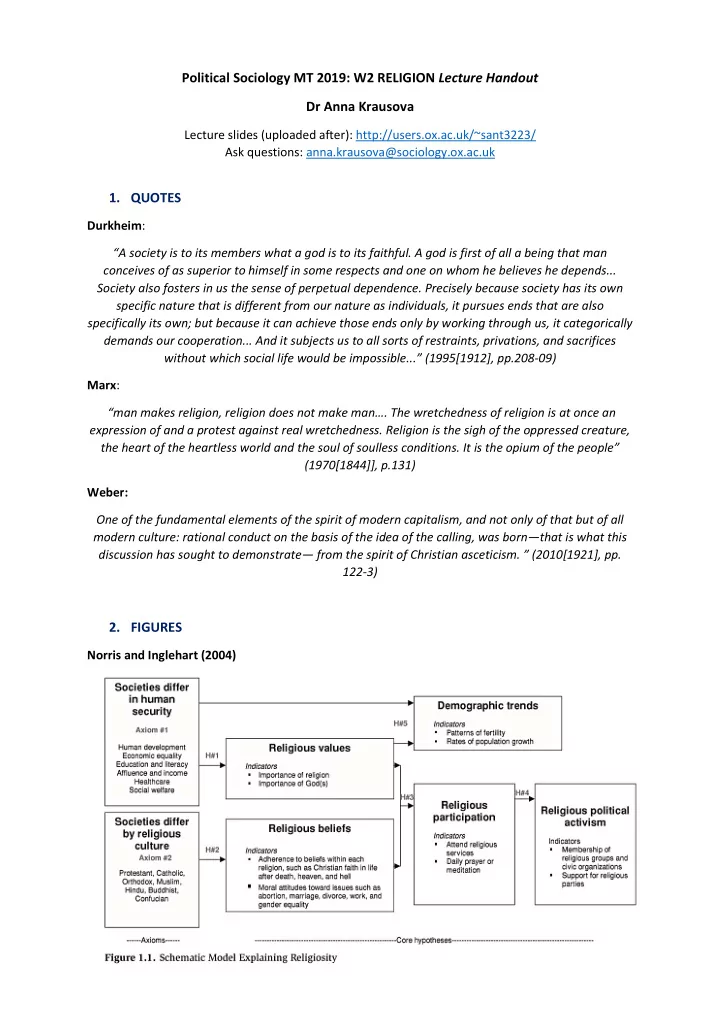

Political Sociology MT 2019: W2 RELIGION Lecture Handout Dr Anna Krausova Lecture slides (uploaded after): http://users.ox.ac.uk/~sant3223/ Ask questions: anna.krausova@sociology.ox.ac.uk 1. QUOTES Durkheim : “A society is to its members what a god is to its faithful. A god is first of all a being that man conceives of as superior to himself in some respects and one on whom he believes he depends... Society also fosters in us the sense of perpetual dependence. Precisely because society has its own specific nature that is different from our nature as individuals, it pursues ends that are also specifically its own; but because it can achieve those ends only by working through us, it categorically demands our cooperation... And it subjects us to all sorts of restraints, privations, and sacrifices without which social life would be impossible... ” (1995[1912], pp.208-09) Marx : “man make s religion, religion does not make man…. The wretchedness of religion is at once an expression of and a protest against real wretchedness. Religion is the sigh of the oppressed creature, the heart of the heartless world and the soul of soulless conditions. It is the opium of the people” (1970[1844]], p.131) Weber: One of the fundamental elements of the spirit of modern capitalism, and not only of that but of all modern culture: rational conduct on the basis of the idea of the calling, was born — that is what this discussion has sought to demonstrate — from the spirit of Christian asceticism. ” ( 2010[1921], pp. 122-3) 2. FIGURES Norris and Inglehart (2004)
Crouch (1999) Exercise 1: Are there any potential problems with the comparison between the data from Crouch and ONS?
Wold Values Survey Muller and Neundorf (2012)
Exercise 2 What evidence would we look for to help us evaluate the secularisation as opposed to the revival argument? Secularisation/Modernisation - - - Revival - - - Northmore-Bell & Evans (2016)
Norris and Inglehart (2012) Ben-Nun Bloom & Arkan, 2011
van der Brug et al. (2009) Brooks et al, (2006)
Tilley (2014) 4. Past exam questions: Q. Does the importance of religion in politics change mainly through cohort replacement? (2019) Q. Are religious voters ‘values voters’? (2018) Q. How do the political implications of Islam differ from those of Christianity? (PPE 2017) Q. Why is religiosity a more important electoral cleavage than religious denomination in Western democracies? (PPE 2010)
Recommend
More recommend